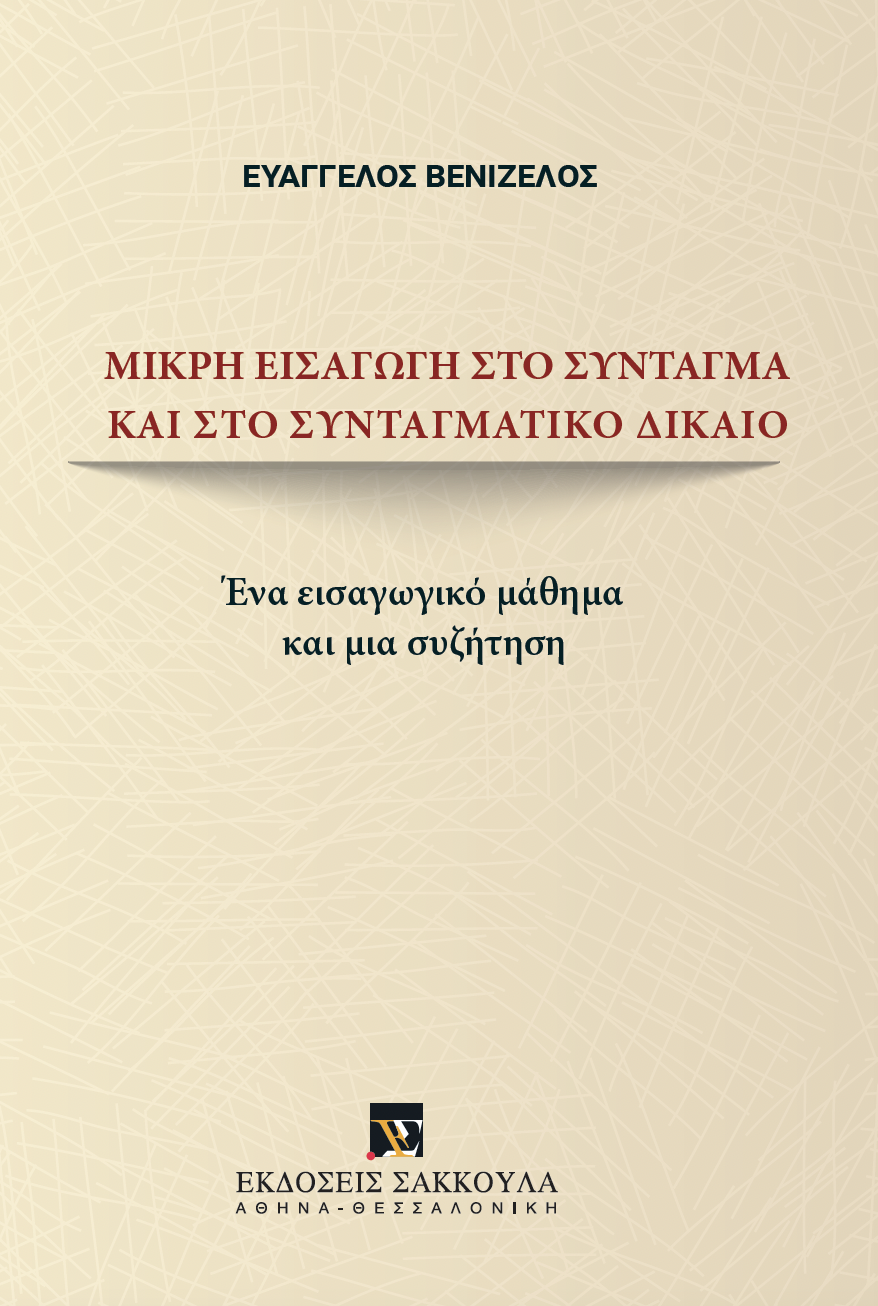- Evangelos Venizelos, From the relativization of the Constitution to the “augmented Constitution” , ERPL/REDP, vol. 32, no 3, autumn/automne 2020, pp 973-1017 [PDF]
Abstract
The question in this analysis is whether a “member state”, as a state of “reduced or shared sovereignty”, has a constitution of “reduced or shared supremacy”, i.e. a less powerful constitution because its supremacy over EU law and the International Law (especially the ECHR) is disputed.
I will argue for the position that the relativization of the national constitution does not diminish its regulatory content and significance, but leads to the phenomenon of an “augmented Constitution” through an interesting reverse flow of case law developments, mainly at national level. We can therefore define as an augmented Constitution, the national Constitution, primarily the written, rigid and codified one, which without changing the constitutional text, strengthens its regulatory content and ensures its legal primacy through its interpretation in accordance with the EU law and international human rights law.
The augmented Constitution is therefore the result of a constitutional strategy that ensures the coexistence of a plurality of legal orders and of rules that claim, in a self-referential way, legal supremacy and priority of implementation in their field. This strategy obviously includes some concessions in favor of EU law or the ECHR. In the vast majority of cases, however, it results in an augmentation of the guarantee content of the Constitution and the strengthening of democracy, the rule of law and the protection of human rights.














